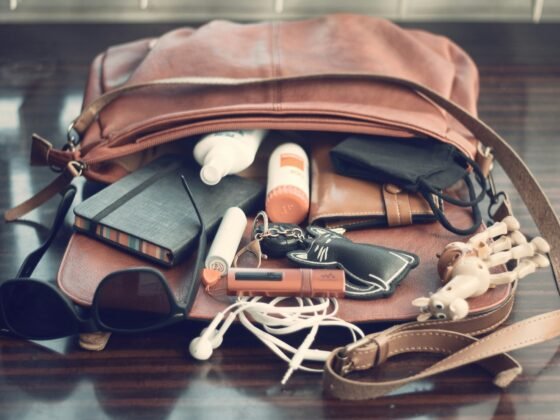Pack light. Bring only necessities. Leave anything behind that you can buy when you arrive. Don’t pack too many clothes and do laundry while you’re there. All of these travel tips make sense. There’s only so much room in a suitcase, and nobody wants to haul around five pieces of luggage to bring their kitchen appliances with them.
The problem is, some items deemed unnecessary can become necessary when you realize you’re suffering in their absence. Although it’s troublesome to carry some of these items around, your trip will be better if you do.
1. Bring your favorite bed pillow
When arriving at a hotel or a guest home, you never know what you’re going to get for a pillow. It could be filled with feathers or foam, thick or thin, flat or fluffy. If you can’t sleep well without a specific type of pillow, it’s better to take one with you.
You could call ahead and ask for special accommodations, but the right bed pillow isn’t something anyone can grab off the shelf.
Avoid waking up with a stiff neck by stuffing your pillow in a duffel bag you can strap to your luggage. If you’re flying, check it, don’t try to carry it on the plane.
2. Access to more money than you think you’ll need
Some people advise against traveling with credit cards that give you access to your main bank account. The logic is, if your card gets stolen, the thief won’t have access to your money and if you run into an expensive impulse buy, you’ll have to pass. The problem is, if you get in trouble, you won’t have access to your money, either.
Your wallet might be drained by something worse than impulse buys: an accident. Accidents can happen anywhere, even on your hard-earned vacation. If you’re injured severely enough to land in the hospital in an unfamiliar location, having an emergency fund can bring some comfort and ease.
This is especially true of brain injuries because you could end up in a coma for days. When you get released from the hospital, you might need to get a hotel room for a few days or weeks before being cleared to fly home. “A survivor of a severe brain injury may be in coma for a period of time and require an extended hospital stay followed by months of rehabilitation,” says Sawaya Law.
Depending on the severity of your injury, you might have difficulty traveling back home the way you came. If you flew, you might need to rent a car and drive back or take the bus or train.
3. Bring a couple of kitchen conveniences
A few items from your kitchen will keep you in good health wherever you go. The most important items are at least one set of silverware, a few sponges, and a small bottle of dish soap. You can buy paper plates and bowls when you arrive.
Some hotels provide dishes, but unless they come wrapped in plastic sealed by the manufacturer, it’s a good idea to skip them. The hotel probably doesn’t sanitize all their dishes between guests, and who knows what the last guest did with them. For motivation, watch how hotels get away with dirty practices.
4. A gigantic tub of disinfecting wipes
Pack at least one of those giant tubs of disinfecting wipes you can barely get your hand around. You’ll have to check it, and the extra space in your luggage is worth it. Based on the video linked above, and plenty more like it, you’ll have a lot of work to do before settling into your hotel room.
Don’t kid yourself into thinking you’ll buy some wipes before you get to your hotel. You’ll probably end up too tired to stop, and you’ll want to dive right into a nap without sanitizing surfaces first.
5. Air deodorizer
Bring something you can use to remove that hotel stench from the air. If you’re traveling somewhere with a grocery store, you can probably find your preferred scent, and you can buy it when you arrive. If you’re chemically sensitive, you’ll want to make sure you pack something in your suitcase.
Functional items can be bulky and that’s okay
Everyone encourages travelers to pack light, but if you have specific needs, bring items that will make your life easier. Airports and hotels provide carts to help you carry luggage if needed. You don’t have to struggle, even if you do bring your kitchen with you.












